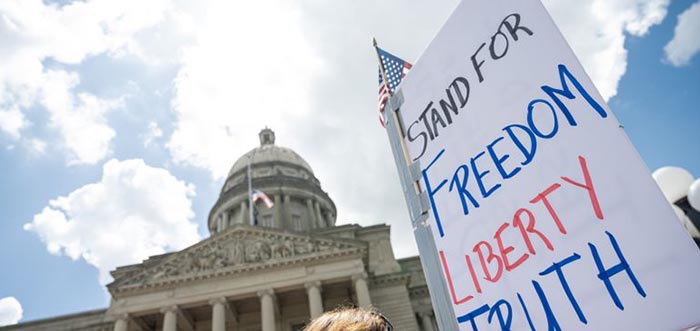
From K-12 Dive
By Anna Merod
April 4, 2022
Dive Brief:
Nonprofit racial justice organization Race Forward has launched a new initiative to create a grassroots movement building off ongoing local efforts to combat campaigns saying critical race theory is taught in K-12 schools.
The Honest Education Action and Leadership Together initiative was announced during a webinar Thursday in partnership with New York University’s Metropolitan Center for Research and Equity and the Transformation of Schools, the Schott Foundation for Public Education, the National Education Association and others.
“With its launch, HEAL Together marks the start of a new coalition of communities and individuals fighting against those trying to deceive and distract and divide us,” said NEA President Becky Pringle during the webinar.
Dive Insight:
There’s a major need for a grassroots response to the anti-CRT movement, said Jeremy Young, senior manager of free expression at PEN America, a nonprofit organization tracking state bills that seek to censor educators.
“It’s a numbers game,” Young said. “There’s so much money going into promoting these attacks on free expression in education and so much mobilization going on, on the right, to make these bills happen.”
In 2020 and 2021, some 894 school districts representing 35% of all K-12 students were impacted by local actions related to anti-CRT campaigns, according to a recent study by researchers from the University of California, Los Angeles, and the University of California, San Diego.
CRT is a university-level theory that is used in education research and is not taught in K-12 classrooms, according to the study.
The study also found that an extensive, broad network is fueling the national anti-CRT campaign run by conservative entities through organizations, media outlets, politicians, foundations and political action committees.
Sparked by CRT fears, 15 states have enacted “educational gag order” bills since 2021, limiting discussions on gender, race or divisive topics in K-12 classrooms, according to PEN America’s latest report. In March 2022 alone, Florida, Mississippi and South Dakota passed such bills.
Florida Gov. Ron DeSantis signed the “Parental Rights in Education” bill, widely dubbed by detractors as the “Don’t Say Gay” bill, preventing public school teachers from discussing sexual orientation or gender identity in classrooms.
But challenges to anti-CRT and anti-LGBTQ laws have been growing, and not all of these similar-minded state proposals have taken hold. The Indiana state Senate in February killed, House Bill 1134, which would have limited what educators could say in the classroom about race, gender, ethnicity and religion.
The Indiana State Teachers Association celebrated the bill’s defeat in a statement crediting a coalition of educators, parents and community members who spoke out against the proposal.
“Over the past several weeks, ISTA members and public education advocates have shared their stories and voiced their concerns about stifling teachers’ ability to teach and students’ ability to receive an honest education,” said ISTA President Keith Gambill in a statement.
Legislators pay attention to the number of people in a room speaking out, Young said. That’s why it’s key for grassroots leaders to testify during hearings, write to legislators and send opinion pieces to local media, he said.
The HEAL Together initiative provides an online toolkit with steps for building a school or community-wide campaign “to win the fight for honest, accurate and fully funded public education that is the foundation for a just, multiracial democracy.”
NEA’s Pringle said partnerships like HEAL Together will help provide educators with tools “to accurately portray the contributions and challenges of all people in the wake of the current culture wars that have seen books banned, educators censored and even basic discussions about race, gender and sexual orientation barred from the classroom.”
Photo: Jon Cherry / Stringer via Getty Images
Read this and other stories at K-12 Dive

